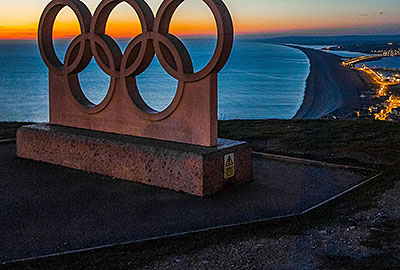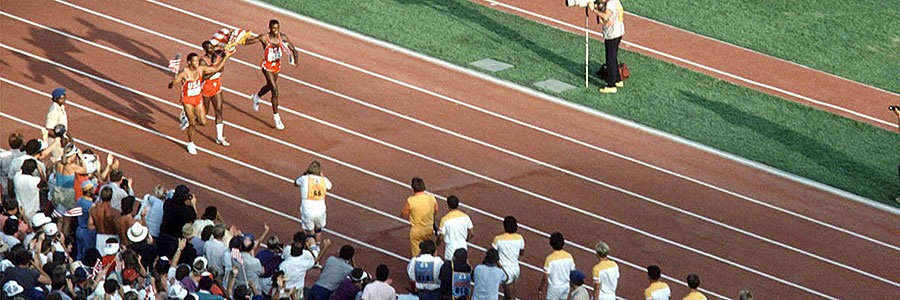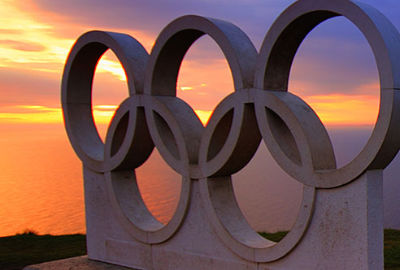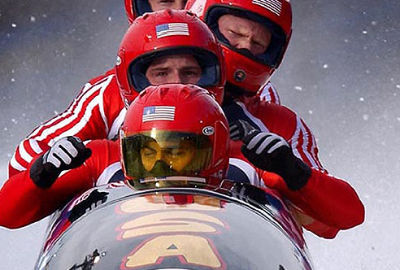 2021-10-07
2021-10-07

5 Historic Olympic Legends
- ArticlesandContent.com (CIRCA 2005)
- /
- Oct 8, 2021 (written 2005)
Since the first official Summer Olympic Games were held in Athens in 1896, they have grown into the largest sporting event in the world. This article looks at some of the greatest summer Olympics legends, and their contribution to sporting folklore.
1936 Berlin: Jesse Owens
Berlin Olympics of 1936 are largely famous for the wrong reasons. Adolf Hitler wanted to use them to showcase Germany’s achievements, and underline the superiority of the German people over other peoples and races. But the Fuhrer had not reckoned on Jesse Owens, one of the greatest athletes the United States has ever produced.
Born in Oakville, Alabama in 1913, Owens came to Berlin as a respected sprinter and long jumper, who had the previous year set four world records in 45 minutes at a meet in Michigan. He left as a summer Olympic legend. In the 100m he famously triumphed in front of a displeased Hitler, securing a notable propaganda victory in the process. He also won medals in the 200m, the long jump and the 4x100m relay, to leave the games with four gold medals to his name. In doing so, he also struck a notable blow on behalf of African-Americans back home in the USA, and fully merits his place in summer Olympics history. He was awarded the HYPERLINK "http://www.medaloffreedom.com/" Presidential Medal of Freedom in 1976.
1952 Helsinki: Emil Zatopek
Emil Zatopek was one of the greatest long distance runners in summer Olympics history, competing in three summer Olympic Games and winning four gold and one silver medal in this most demanding of disciplines. His greatest achievements were at the summer Olympics at Helsinki, where he won three gold medals, breaking the record for summer Olympic Games in each event; one each in the 5000 and 10,000 meters, and the third coming when, at the last moment, he decided to compete in the marathon for the first time in his career – and won.
Zatopek incurred the displeasure of the Communist regime in his home country of Czechoslovakia four years later by supporting the cause of democratic reform during the HYPERLINK "http://en.wikipedia.org/wiki/1956_Hungarian_Uprising" 1956 revolution, and forced to work in the mines for a spell. He died in 2000 at the age of 78.
1972 Munich: Mark Spitz
Mark Spitz was born in Modesto, California, and by an early age was breaking all manner of swimming records. He went to the 1968 summer Olympics already a multiple world record holder, but his prediction that he would win six gold medals proved to be a foolish one, though he went home with two golds from relay events. Four years later, though, at the 1972 summer Olympics, this prediction came true in glorious fashion as Spitz won seven gold medals in a single Olympic games, a feat that has never been matched and which is now a Holy Grail for the best swimmers of the modern era.
The 1972 summer Olympic Games were marred by the HYPERLINK "http://en.wikipedia.org/wiki/Munich_massacre" murder of 11 Israeli athletes by Palestinian terrorists, and as a Jewish-American sportsman with close links to Israel, Spitz was profoundly affected by the tragedy, and retired soon after coming home from Munich.
1984 Los Angeles: Carl Lewis
Carl Lewis is one of only two men to win 10 gold medals at summer Olympic Games in a career that spanned four Olympic Games. One of the most charismatic and controversial athletes of his time, he played a huge role in transforming track and field in the US into the sport it is today.
Lewis’ finest hour came in his first Games, the 1984 summer Olympics in Los Angeles, when he fulfilled an ambition by matching Jesse Owens’ record of four gold medals in a single Games, and in the same four events that Owens had contested. Unlike Owens, he went on to win a further five gold medals at subsequent summer Olympics, his last at the age of 36 when the Games returned to the USA, at Atlanta in 1996. He was named Sportsman of the Century by the International Olympic Committee in 1999.
1996 Atlanta: Michael Johnson
A native Texan, Michael Johnson is one of the finest athletes to compete in the modern era, and the first man to win gold medals in the 200m and 400m at the same summer Olympics, a feat that had seldom been attempted before. In all, he won five Olympic golds and nine World Championships, and was undoubtedly the biggest track and field star of his generation.
Johnson’s run in the 200m in Atlanta at the 1996 Games remains one of the great performances in summer Olympics history, his distinctive upright running style seemingly adding to his speed rather than detracting from it as he smashed his own world record in a time of 19.32 seconds. Johnson retired from the sport in 2000, and now works in broadcasting.



